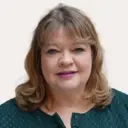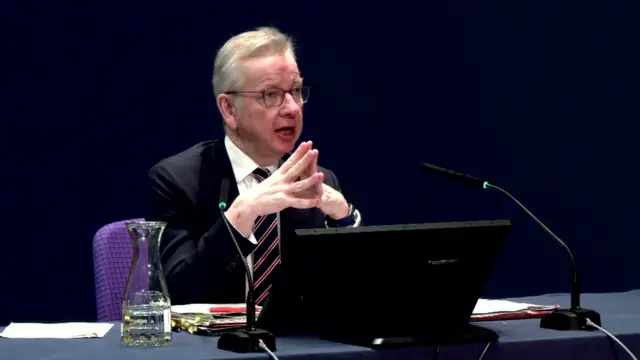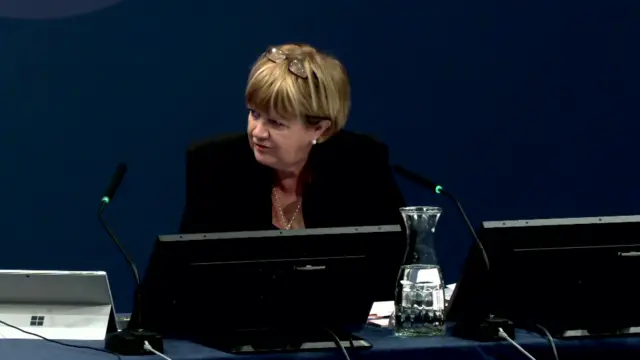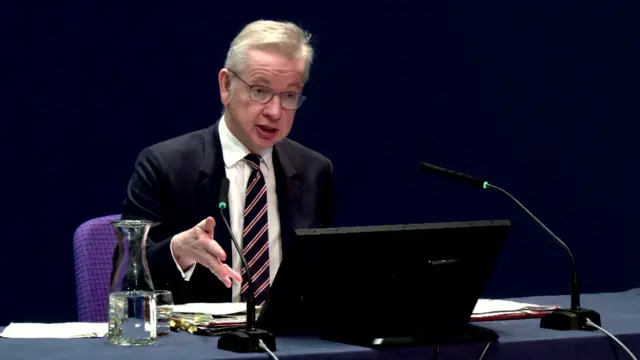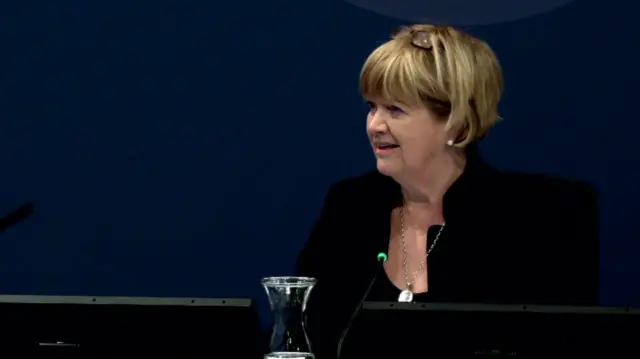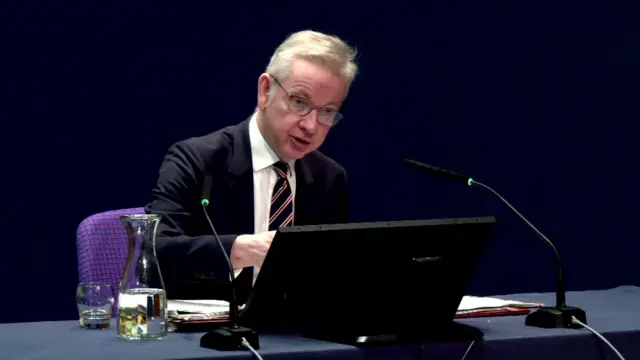Gove: No aim to 'provoke or deceive' by changing messagepublished at 12:45 GMT 29 January 2024
Conversation now turns to how the UK government's "stay at home" message changed in May 2020 to a message that encouraged people to simply stay alert.
Jamie Dawson KC says the Scottish government felt it had been misled by the prime minister about the shift.
"They lost faith in the UK government's approach," he adds.
Gove accepts the first minister and her team felt irritated but "I don't believe there was any intention to provoke and deceive" he expects "it was more to do about the pace of decision-making".
